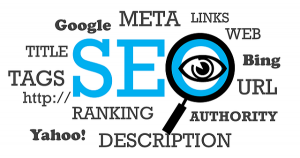Looking to take your search engine optimization (SEO) strategy to the next level? If so, then it may be time to refine your keyword research and keyword targeting. Specifically, choosing the right keywords to target in your content marketing can boost your rankings on the search engine results pages (SERPs). It can also drive traffic to your site, and even boost your brand’s reputation as an industry leader.
At the same time, keyword targeting can be easier said than done. And when it’s not done right, the consequences for your brand can be huge.
So, what exactly is keyword targeting, what does it entail, and how can you use it to your advantage? Let’s dive in.
- Understanding The Impact of Keyword Research Mistakes On SEO Performance
- Strategies To Improve Keyword Targeting And Results
- Optimize Your Keyword Targeting With Help From WriterAccess
Download this post by entering your email below
Understanding The Impact of Keyword Research Mistakes On SEO Performance
The keywords you use and how you use them can have a major impact on your SEO performance. Unfortunately, there are a number of common mistakes you can make in your keyword research.
One of the most common is that of choosing the wrong or irrelevant keywords to target in your content marketing. This may include using keywords that your target audience isn’t actually searching for. Even worse, it can include targeting keywords that may have negative connotations (and thus impact your brand reputation).
Be careful, too, about ignoring long-tail keywords and other less common keyword types in your marketing. These days, long-tail keywords (longer phrases consisting of three to five words) can be extremely effective at targeting niche audiences. They also tend to have lower competition than short-tail keywords. So, you won’t want to overlook these in your keyword research and targeting strategy.
Another common mistake is cramming their entire keyword lists into a blog post and assuming that will yield positive results. In reality, successful keyword targeting is about not just choosing the right keywords, but incorporating them into your content strategically for the best results.
Content that is obviously crammed with keywords will not only affect its readability but may even get your site “punished” by the search engine algorithms.
Strategies To Improve Keyword Targeting And Results
Sure, there’s a lot that can go wrong in a keyword-targeting strategy if you don’t know what you’re doing. The good news? There are some strategies you can use to improve your keyword targeting and results quickly.
Identifying the wrong keywords in your strategy
Start with the right keyword research tools. They’ll will work wonders in helping you identify the right and wrong keywords in your strategy.
There are plenty of both paid and free keyword research tools out there. They can help you find the best short-tail, long-tail, intent keywords, and questions to target in your content. Check out our list of the top 10 keyword explorer tools to get started.
These tools can help you determine the best types of keywords to target in your content and which ones may be a waste of time. This can help you further refine your own keyword optimization strategy and take your marketing to new heights.
Targeting the low-difficulty keywords
While it may seem like targeting the lower-difficulty keywords will make your life easier, the reality is that this rarely yields results. Keywords are ranked low-difficulty for a reason; they’re easy to rank for and don’t require a high domain authority score.
Unfortunately, effectively measuring keyword difficulty isn’t always easy. The keywords that are truly low-difficulty are not the ones that will make a long-term difference in your marketing strategy.
For the best results, you’ll want to focus instead on more difficult keywords that will yield more high-volume searches to your website. Yes, you will need to work harder (and smarter) to rank for these keywords. But your efforts will pay off greatly from an SEO standpoint.
Know where to use target keywords for the biggest impact
Unfortunately, all the keyword research in the world won’t help you if you’re not using your keyword list wisely. While it’s a good idea to naturally incorporate some of your target keywords directly into the body of your content (whether that’s a blog post or page on your website), strategically placing keywords in other places may actually have a bigger impact.
So, where should your target keywords be located? Make sure they’re found in any image alt tags that may be included on your blog or web page. Likewise, keywords tend to perform well in meta descriptions, headlines, and page titles.
If you have longer-form content that’s broken up by headings or subheadings, adding your primary keywords to these headings can also help with your search engine rankings. A little strategic placement here can go a long way in maximizing your content marketing and SEO strategies.
Optimize Your Keyword Targeting With Help From WriterAccess
Taking the time to properly research and target the right keywords can do wonders for your content marketing and SEO, helping your site rank higher and drawing in more traffic over time. And with these tips in mind, you’ll be able to avoid some of the most common keyword-targeting mistakes.
Looking for more help with your content marketing? WriterAccess’s innovative AI Content Wizard is designed to quickly analyze your domain, audience, competitors, and keywords to suggest the best content opportunities—saving you time and hassle.
And this is just one of many AI-powered tools available through WriterAccess to maximize your content marketing efforts. Once you’ve narrowed down your keyword list, our team of more than 15,000 knowledgeable and experienced writers is here to strategically incorporate those keywords into quality content that will stand out from the rest.
Ready to dive in? Learn more or start your free 14-day trial today!







